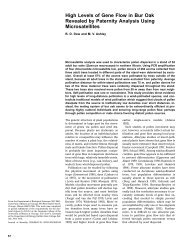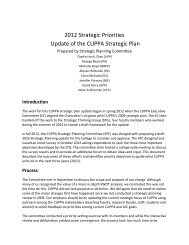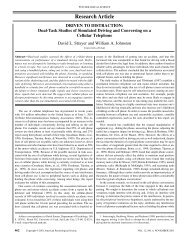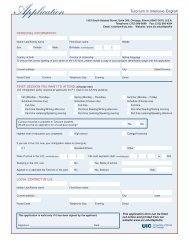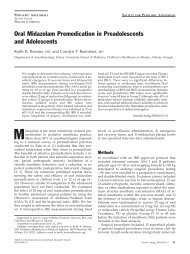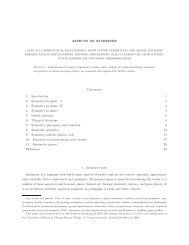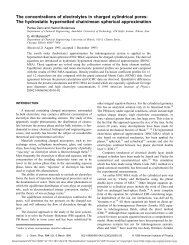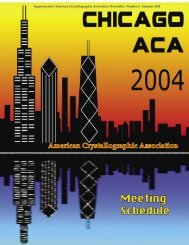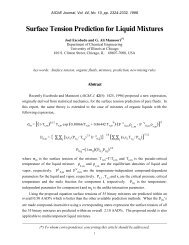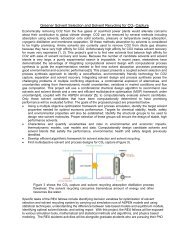Repeating Lenin by Slavoj Zizek
Repeating Lenin by Slavoj Zizek
Repeating Lenin by Slavoj Zizek
Create successful ePaper yourself
Turn your PDF publications into a flip-book with our unique Google optimized e-Paper software.
<strong>Repeating</strong> <strong>Lenin</strong> <strong>by</strong> <strong>Slavoj</strong> <strong>Zizek</strong><br />
9/20/11 2:53 PM<br />
The key antagonism of the so-called new (digital) industries is thus: how to maintain the form<br />
of (private) property, within which only the logic of profit can be maintained (see also the<br />
Napster problem, the free circulation of music). And do the legal complications in biogenetics<br />
not point in the same direction? The key element of the new international trade agreements is<br />
the “protection of intellectual property”: whenever, in a merger, a big First World company<br />
takes over a Third World company, the first thing they do is close down the research<br />
department. Phenomena emerge here which bring the notion of property to extraordinary<br />
dialectical paradoxes: in India, the local communities suddenly discover that medical practices<br />
and materials they are using for centuries are now owned <strong>by</strong> American companies, so they<br />
should be bought from them; with the biogenetic companies patenting genes, we are all<br />
discovering that parts of ourselves, our genetic components, are already copyrighted, owned <strong>by</strong><br />
others...<br />
However, the outcome of this crisis of the private property of the means of production is <strong>by</strong><br />
no means guaranteed — it is HERE that one should take into account the ultimate paradox of the<br />
Stalinist society: against the capitalism which is the class society, but in principle egalitarian,<br />
without direct hierarchical divisions, the “mature” Stalinism is a classless society articulated in<br />
precisely defined hierarchical groups (top nomenklatura, technical intelligence, army...). What<br />
this means is that, already for Stalinism, the classic Marxist notion of the class struggle is no<br />
longer adequate to describe its hierarchy and domination: in the Soviet Union from the late 20s<br />
onwards, the key social division was not defined <strong>by</strong> property, but <strong>by</strong> the direct access to power<br />
mechanisms and to the privileged material and cultural conditions of life (food, accommodation,<br />
healthcare, freedom of travel, education). And, perhaps, the ultimate irony of history will be<br />
that, in the same way <strong>Lenin</strong>’s vision of the “central bank Socialism” can be properly read only<br />
retroactively, from today’s World Wide Web, the Soviet Union provided the first model of the<br />
developed “post-property” society, of the true “late capitalism” in which the ruling class will be<br />
defined <strong>by</strong> the direct access to the (informational, administrative) means of social power and<br />
control and to other material and social privileges: the point will no longer be to own companies,<br />
but directly to run them, to have the right to use a private jet, to have access to top health care,<br />
etc. — privileges which will be acquired not <strong>by</strong> property, but <strong>by</strong> other (educational, managerial,<br />
etc.) mechanisms.<br />
Today, we already can discern the signs of a kind of general unease — recall the series of<br />
events usually listed under the name of “Seattle.” The 10 years honeymoon of the triumphant<br />
global capitalism is over, the long-overdue “seven years itch” is here — witness the panicky<br />
reactions of the big media, which — from the Time magazine to CNN — all of a sudden started<br />
http://www.marxists.org/reference/subject/philosophy/works/ot/zizek1.htm<br />
Page 34 of 57



